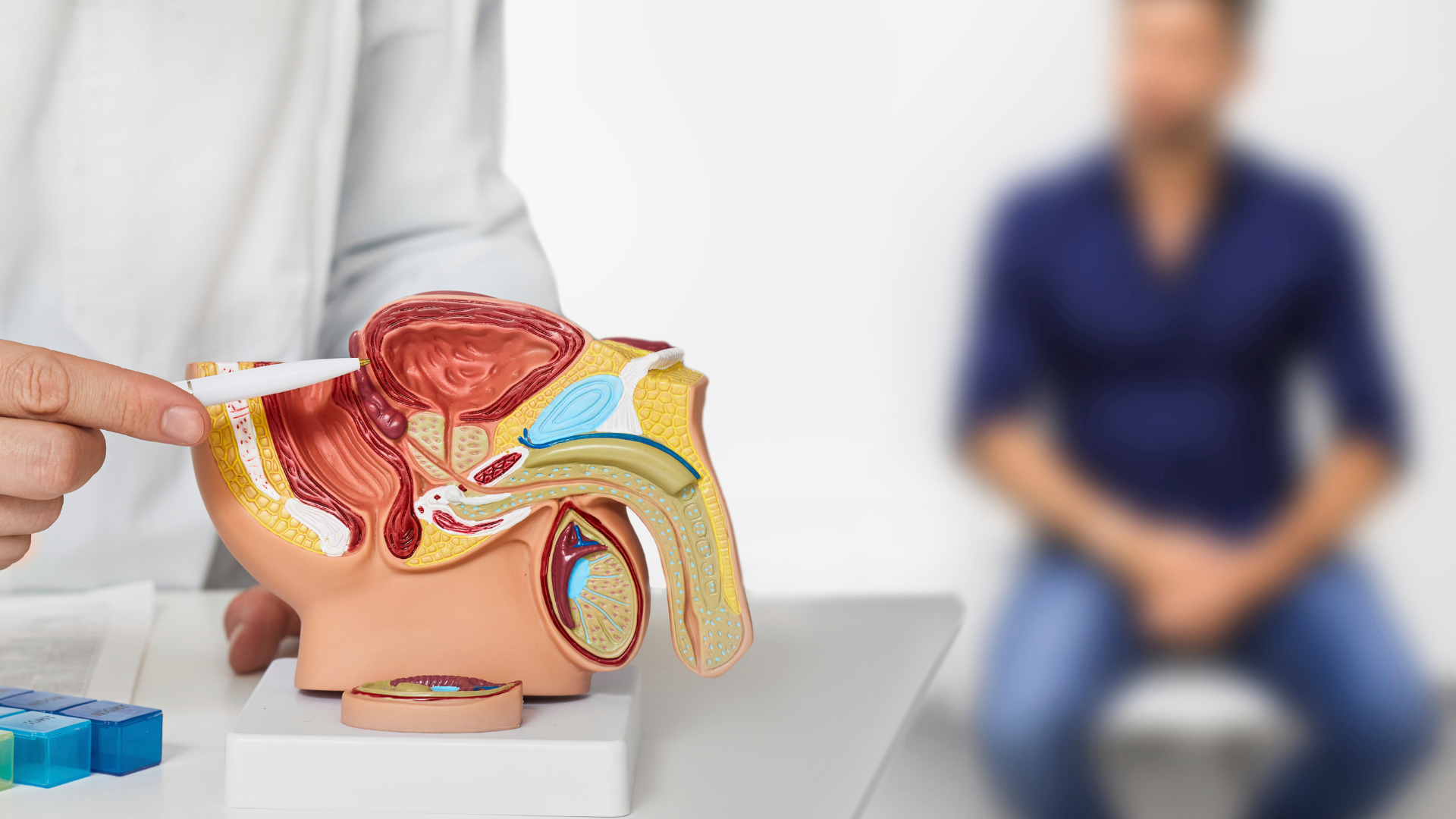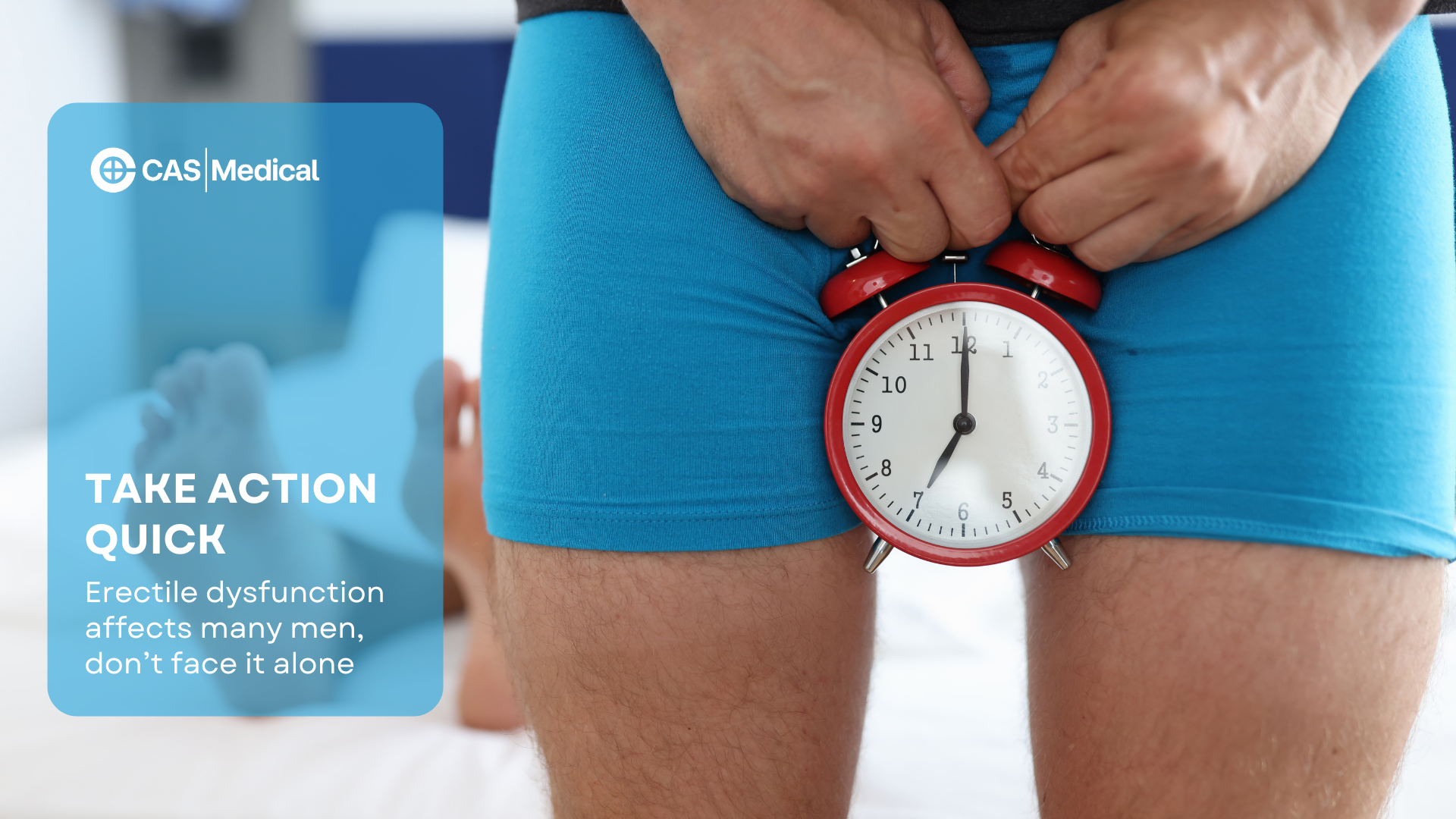Erectile dysfunction (ED) affects millions of men in the UK. Contrary to common notions about this condition, it doesn’t just affect older men – it can hit at any age due to physical or psychological reasons. The impact on relationships and self-esteem can be significant.
Understanding likely causes and available treatment options is crucial for eliminating the stigma around the condition, provide solutions, and boost confidence in seeking professional help. From the latest treatments to lifestyle changes, there are numerous approaches to help address erectile dysfunction effectively.
Whether it’s exploring medical interventions, considering the role of certain medications, or looking into the connection between ED and conditions like diabetes, this article aims to provide a comprehensive overview. You will gain valuable insights to help you make informed decisions about your penile health and well-being.
Understanding Erectile Dysfunction
Definition and Prevalence
When stimulated, the nerves release chemicals that increase blood flow to the penis. Blood flows into two erectile chambers in the penis that are made of spongy muscle tissue (cavernosoma). During arousal, the spongy tissue relaxes and traps blood. The blood pressure in the chambers cause the penis to become firm causing an erection. When a man reaches orgasm, other nerve signals reach the penis, the muscle tissue in the penis relaxes, and blood is pumped back into the man’s circulation, causing the erection to decrease. A regular disruption to this process can cause erectile dysfunction which leads to a persistent inability to achieve or maintain a penile erection sufficient for satisfactory sexual performance.
According to the Massachusetts Male Aging Study, the total prevalence of ED among men aged 40-70 years was 52 percent, although it also affects younger men. Globally, it was estimated that over 152 million men experienced ED in 1995. It is now projected that this number could rise to approximately 322 million by 2025.
Common Causes of Erectile Dysfunction
Erectile dysfunction is a complex condition with various possible underlying causes. Mayo Clinic outline that physical issues such as heart disease, high cholesterol, high blood pressure, diabetes, and obesity can lead to ED. Additionally, psychological factors like depression, anxiety, stress, and relationship problems can interfere with sexual function. Often, it’s a combination of both physical and psychological factors.
Endothelial dysfunction is a common pathway in many cases of erectile dysfunction. Endothelial dysfunction is a type of non-obstructive coronary artery disease (CAD) in which there are no heart artery blockages, but the large blood vessels on the heart’s surface narrow instead of dilating. This condition can affect the blood vessels and nerves essential for achieving and maintaining an erection. Other potential causes include neurological diseases, hormonal imbalances, and the use of certain medications.
Risk Factors of Erectile Dysfunction
Several risk factors contribute to the development of ED:
- Age: The risk of erectile dysfunction increases with age, with about 40% of men affected at age 40 and 70% by age 70.
- Chronic diseases: Conditions such as diabetes, cardiovascular disease, and chronic kidney disease can significantly increase the risk of ED.
- Lifestyle factors: Smoking, excessive alcohol consumption, lack of physical activity, and being overweight can also contribute to erectile dysfunction.
- Medications: Certain drugs, including some blood pressure medications, antidepressants, and prostate cancer treatments, can have ED as a side effect.
- Psychological factors: Stress, anxiety, depression, and low self-esteem can all play a role in the development of erectile dysfunction.
Understanding these aspects of ED is crucial for men experiencing this condition. It’s important to remember that it is a common and treatable issue, and seeking professional help can lead to effective management and improved quality of life.
Diagnosing Erectile Dysfunction
Medical History and Physical Exam
The diagnostic process for erectile dysfunction begins with a comprehensive medical and sexual history, followed by a physical examination. Doctors typically ask questions about the onset, context, and frequency of ED symptoms.
They also inquire about lifestyle factors, general health, and any medications the patient is taking. A physical exam includes checking blood pressure, assessing body mass index, and a genital examination. This initial assessment helps differentiate between physical and psychological causes of ED.

At CAS Medical, we take extra measures to ensure that we create a safe and open environment When possible, including the partner in the assessment can provide valuable insights, as they may be aware of issues the patient has overlooked or suppressed.
Medical Treatments for Erectile Dysfunction
Medications
Oral medications are often the first line of treatment. These medications, known as PDE5 inhibitors, enhance the effects of nitric oxide, a chemical that relaxes muscles in the penis, boosting blood flow and helping to achieve an erection.
For patients who don’t respond well to oral medications, other effective forms of treatment are available. These include Intracavernosal (injectable), intraurethral (squirted down the opening of the penis) or topical applications. The injectable form causes an erection firm enough for sex in more than 80% of men with ED, according to WebMD.
Penis pumps and implants may be deemed suitable by a urologist.
Testosterone Replacement Therapy
Testosterone Replacement Therapy (TRT) can be beneficial for men with low testosterone levels and mild ED. Studies have shown that TRT improves erectile function in men with low testosterone, with greater improvements observed in studies using a lower testosterone threshold. TRT has also demonstrated consistent benefits in improving libido in men with low testosterone levels.
It’s important to note that these treatments should only be used under medical supervision. Patients should discuss potential side effects and contraindications with their healthcare provider to determine the most suitable treatment option for their individual needs.
In cases where a patient fails to respond to oral therapy of topical therapies, we can help with referrals to urology specialists.
Lifestyle Changes and Alternative Therapies
Diet and Exercise
A healthy diet and regular exercise have a significant impact on erectile function. Dietary improvements help with blood flow, crucial for achieving and maintaining erections. Weight loss can also improve erectile dysfunction in overweight or obese individuals.
Regular physical activity is equally important. Moderate to high levels of exercise are associated with a lower risk of ED [National Library of medicine – Lifestyle modifications and erectile dysfunction: what can be expected?]. According to this research paper, 150 minutes of weekly aerobic activity for three months can lead to improved erectile function and reduced markers of endothelial dysfunction.
Stress Management
Stress can significantly interfere with sexual function and cause erectile dysfunction. Implementing stress management techniques can help improve erectile function. One study showed that an eight-week stress management program, including diaphragmatic breathing exercises and progressive muscle relaxation, lead to significant improvements in perceived stress and erectile function scores.
Natural Remedies
Some natural remedies have shown promise in managing ED. However, it’s important to note that the effectiveness of these remedies varies, and more research is needed to confirm their benefits.
Take Action Today
Erectile dysfunction is a complex issue that affects many men, with a range of possible causes but with treatment options available. From oral medications to lifestyle changes, there are numerous ways to address this condition and improve quality of life.
Understanding the root causes, seeking proper diagnosis, and exploring the various treatment options are key steps in addressing the condition effectively. By taking a holistic approach that includes medical interventions, dietary adjustments, and stress management techniques, many men can find relief and regain confidence in their sexual health.
For those grappling with erectile dysfunction, it’s important to remember that help is available. Contact CAS Medical for discrete, personalised guidance and treatment plans tailored to your individual needs.
